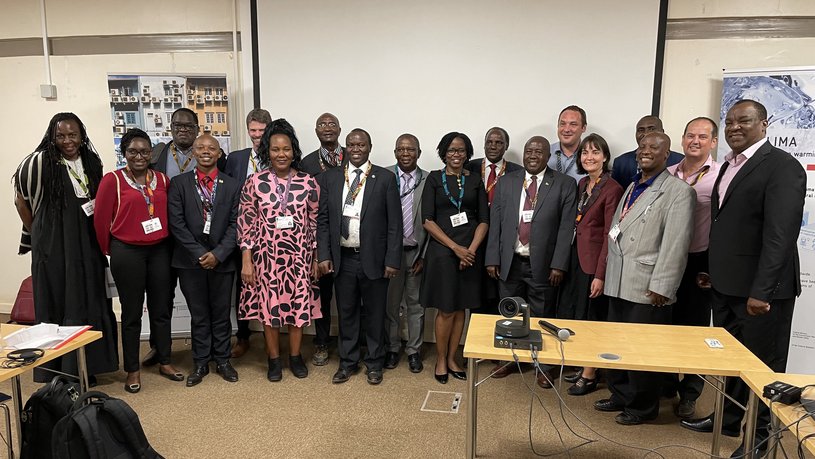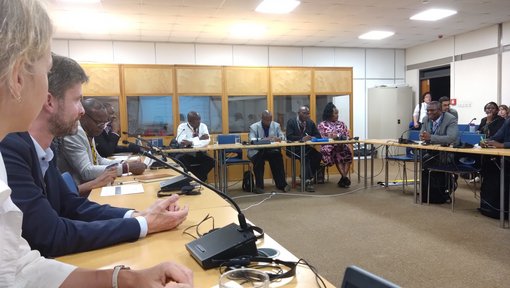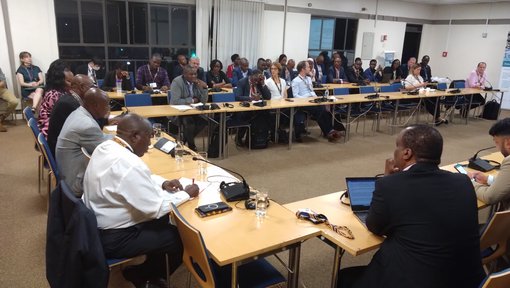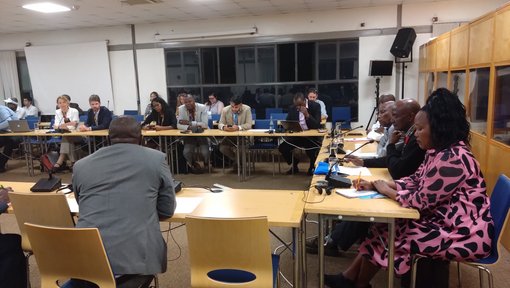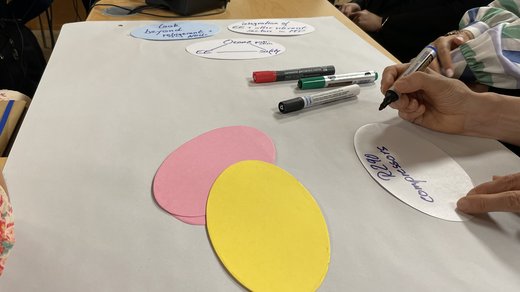Kenya has made considerable achievements in the Montreal Protocol implementation: CFCs were completely phased-out in 2010, and they were followed by halons and methyl bromide. As replacements, natural refrigerants were introduced into the Kenyan market. What made these achievements possible? In the side event, Kenyan stakeholders and the implementing agency GIZ looked back to 27 years of cooperation, reflecting on the effectiveness of the different measures they have put into practice.
The side event was jointly organized by the Kenyan National Ozone Unit and GIZ Proklima in the context of the HCFC phase-out management plan (HPMP) and the Green Cooling Initiative (GCI III). It was co-financed by the French and the German government.
The panelists covered different aspects of the cooperation.
speaker list
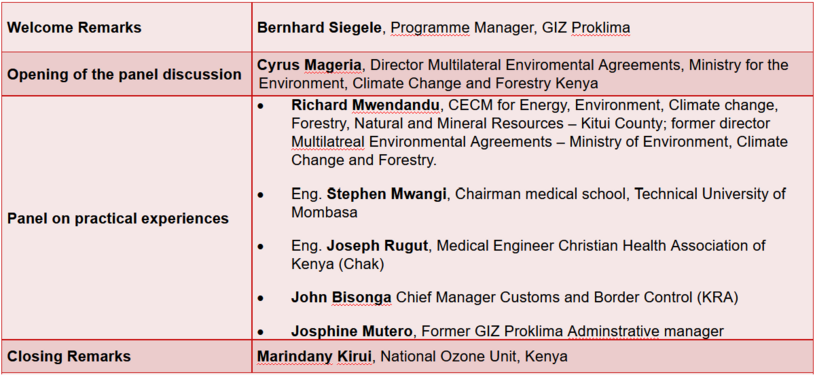
Policy Measures that support Green Cooling
Mr. Cyrus Mageria, Mr. Richard Mwendandu and Mr. Marindany Kirui commented on policy measures. Over the years, Kenya has phased out CFCs, halons and is on a very good way to phasing out HCFCs. In 2023, Kenya adopted a National Cooling Action Plan with the support of GIZ.
Qualification of Refrigeration and Air Conditioning Technicians
Engineer Stephen Mwangi shared his experiences from his many years as a refrigeration and air conditioning (RAC) trainer. About two thousand technicians have been trained in the context of the Kenyan-French-German cooperation, many of them trainers who have then passed on their knowledge to their students. They have learned how to prevent and detect leaks, how to recover refrigerants and how to safely handle natural refrigerants. One challenge for organizing those trainings has been that many technicians in Kenya work in the informal sector. They have no formal RAC education, they appear in no database, and they often fear missing income opportunities while participating in a training session.
Mr. Mwangi also commented on the benefits of the Lokring-connecting method that has been brought from Germany: with this method, pipes can be jointed easily and leakproof without brazing. Brazing, in comparison, is a technique that needs years of experience to master.
In addition to the trainings, Kenya has updated the RAC curricula and included modules on natural refrigerants. The industry was closely involved in the process, as it is the companies that will later work with the qualified technicians, as Engineer Joseph Rugut explained.
Customs Trainings
Not only technicians need to be qualified for successfully implementing the Montreal Protocol and Kigali Amendment. Customs officers, too, need trainings so that they learn how to detect controlled substances and why this is important. The MLF projects in Kenya trained more than 160 customs officers. Mr. Bisonga talked about the challenges they face, being confronted with many different topics. The trainings successfully raised their awareness for ozone and climate protection and improved the customs controls.
Creating a Stakeholder Network
All these achievements have only been possible because different stakeholders have been cooperating with each other. Ms. Josphine Mutero explained how she broadened the network step by step and shared her learnings. For example, one has to bear in mind that industry representatives can hardly ever participate in full-day workshops due to their number of responsibilities. Instead, they are happy to bring their expertise in shorter stakeholder meetings.
Conclusion
All panelists agreed that a lot has been achieved but there is still a lot to be done – and that it can be done by continuing the fruitful cooperation.

